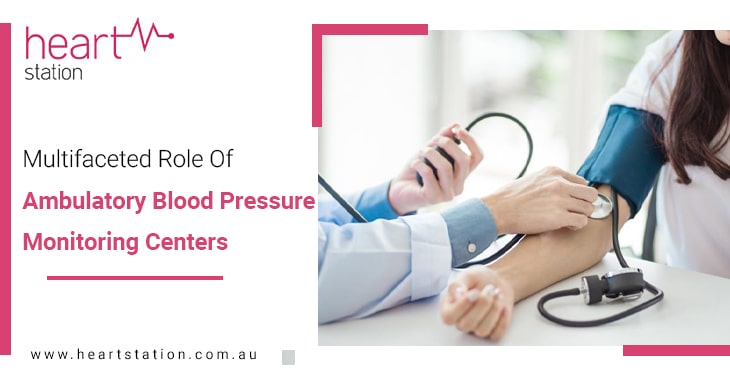Technology in modern healthcare continues to transform how we identify, treat, and oversee different medical issues. Ambulatory Blood Pressure Monitoring (ABPM), one of these innovations, has become a crucial weapon in the fight against cardiovascular illnesses. The Ambulatory Blood Pressure Monitoring Centre also plays a crucial role and is changing along with the landscape of cardiovascular health. If you opt for the Best Ambulatory Blood Pressure Monitoring Centre in Australia, contact Heart Station to get the best care.
Let’s delve into the discussion:-
- Understanding Ambulatory Blood Pressure Monitoring (ABPM)
- Early Detection and Diagnosis
- Personalised Treatment Plans
- Monitoring Treatment Efficacy
- Identifying Nocturnal Hypertension
- Making a Difference in Cardiovascular Research
Understanding Ambulatory Blood Pressure Monitoring (ABPM):
Ambulatory Blood Pressure Monitoring is a non-invasive approach that includes monitoring blood pressure continuously for a certain amount of time, usually 24 hours. The ABPM gives a complete picture of a patient’s blood pressure patterns throughout their daily activities, including sleep. In order to assist them in making wise decisions about patient management, diagnosis, and treatment, this enables healthcare practitioners to get more accurate and representative data.
Early Detection and Diagnosis:
Ambulatory Blood Pressure Monitoring Centre plays a vital role in the early identification and treatment of hypertension. ABPM can identify patterns in blood pressure that would be missed during infrequent clinic visits by tracking blood pressure over an extended period. This information can identify those with “white coat syndrome,” a condition in which fear in a hospital setting raises blood pressure. Accurate diagnosis is crucial for appropriate intervention to begin and stop the course of cardiovascular illnesses.
Personalised Treatment Plans:
A patient’s blood pressure changes, particularly daytime and nighttime measurements, are valuable and revealed by ABPM data to medical practitioners. The creation of individualised treatment programmes that are based on each person’s particular circadian rhythm and way of life is made possible by this abundance of data. Healthcare professionals can improve treatment effectiveness by analysing these trends to change drug schedule dosage and suggest lifestyle changes.
Monitoring Treatment Efficacy:
Ambulatory Blood Pressure Monitoring Centres have a more important role than just diagnosis. In assessing the efficacy of treatment plans, they are crucial. Healthcare providers can evaluate the effectiveness of blood pressure regulation over time by conducting regular ABPM sessions. ABPM data helps direct any necessary therapy revisions to attain the best results.
Identifying Nocturnal Hypertension:
Blood pressure that remains high while you sleep is called nocturnal hypertension, which raises your risk of cardiovascular problems. Ambulatory BP Monitoring Centres play a critical role in detecting this illness since they continuously log blood pressure changes throughout the night. To avoid problems and enhance general cardiovascular health, detecting and treating nocturnal hypertension is essential.
Making a Difference in Cardiovascular Research:
Ambulatory Blood Pressure Monitoring Centres’ data collection aids in cardiovascular research. Researchers can use anonymized ABPM data to gather knowledge about broader population trends and the relationship between blood pressure patterns and long-term health outcomes. This research may influence the formulation of fresh guidelines and treatment plans.
Conclusion
Cardiovascular health has seen the Ambulatory Blood Pressure Monitoring Centre emerge as a key participant. These facilities give healthcare professionals the information they need to diagnose and manage patients by providing continuous, accurate, and complete blood pressure data. If you want to get the Best Ambulatory Blood Pressure Monitoring Centre in Australia, contact Heart Station. Here, you can get free cardiac tests if you have a referral from any cardiologist or doctor in Townsville. Along with that you must have Medicare.

